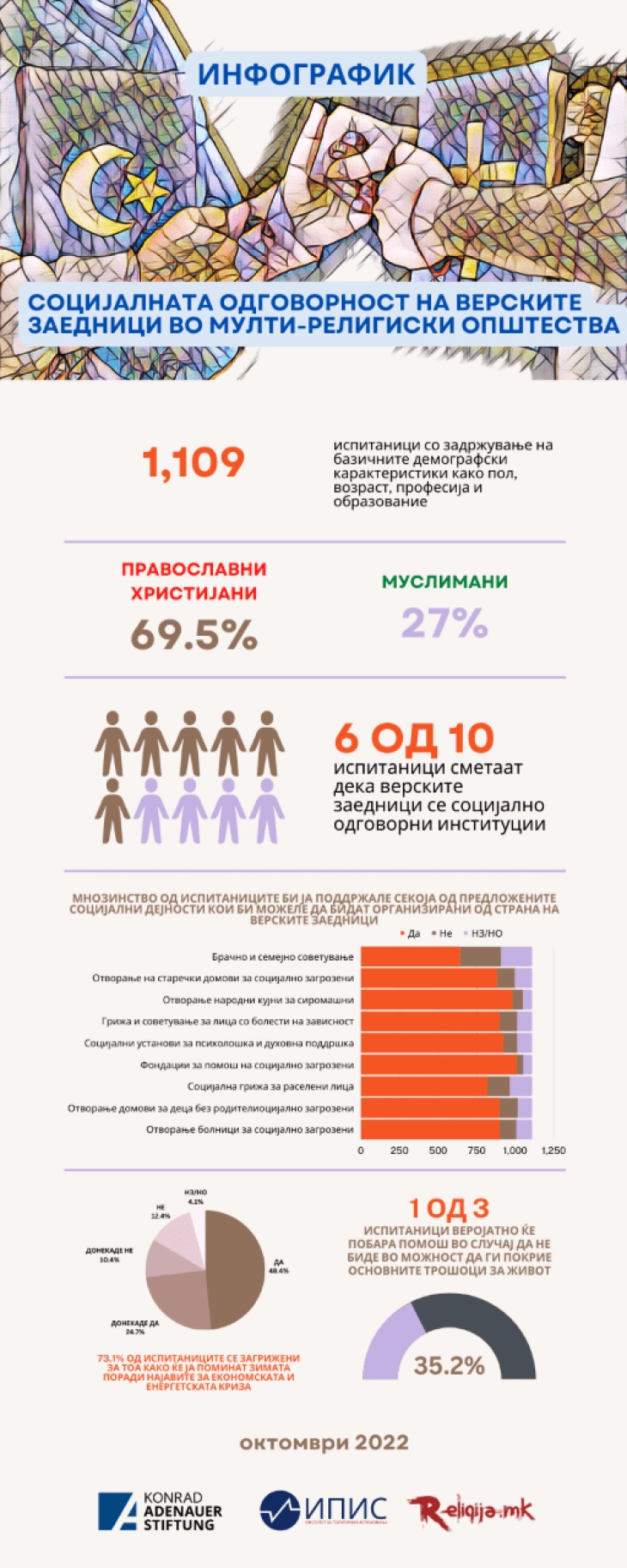Citizens want more socially responsible religious communities: research

Skopje, 8 November 2022 (MIA) - Citizens want more socially responsible religious communities, especially in this period of energy and economic crisis, which they fear will seriously affect their standard of living, according to the latest research by the Institute for Political Research-Skopje (IPIS) and web-portal Religija.mk, with the support of the Konrad Adenauer Foundation.
A high 73.1% of respondents in the survey expressed concern about how they will spend the winter due to the announcements about the economic and energy crisis. When it comes to which expenses they fear will increase the most, electricity and food are in the top two places.
A total of 35.2% of respondents currently have problems with the domestic budget to cover basic expenses. The survey shows that one in three respondents would choose to seek help from their religious community in a situation where they could not cover their basic living expenses. 15.2% of those surveyed believe this winter there could be a need to use the services of soup kitchens organized by religious communities.
Although there is a relatively high percentage of citizens who fully or partially agree that religious communities are socially responsible institutions, they still expect religious communities to be more active in the social life of the community. That attitude is shared by 70% of respondents.
Although 38.1% of respondents agree, and 24.9% somewhat agree with the opinion that religious communities are socially responsible, the majority of citizens were not involved, nor are they familiar with any specific social activity organized by religious communities.
The majority of respondents would support any of the proposed socially responsible activities of religious communities, from humanitarian campaigns to the opening of hospitals or centers for treatment and spiritual-psychological support. The percentage of support for such activities is over 70, and for some even over 90%.
When it comes to the mean score of religious communities in their role in the social aspect of citizens' lives, it is 3.43.
This research follows the trend of the religiousness of the population and shows a constant high percentage of the religious population in the Republic of North Macedonia.
This is the first research of its kind, which is part of the project to monitor citizens' perception of the religious aspects of multi-confessional societies such as the Republic of North Macedonia.
The survey, which is part of the project to monitor citizens' perception of religion and its role in multi-confessional societies, was conducted in October on a representative sample of 1,109 respondents. The margin of error is between +/-3.2% with a 95% confidence interval. dk/ik/







